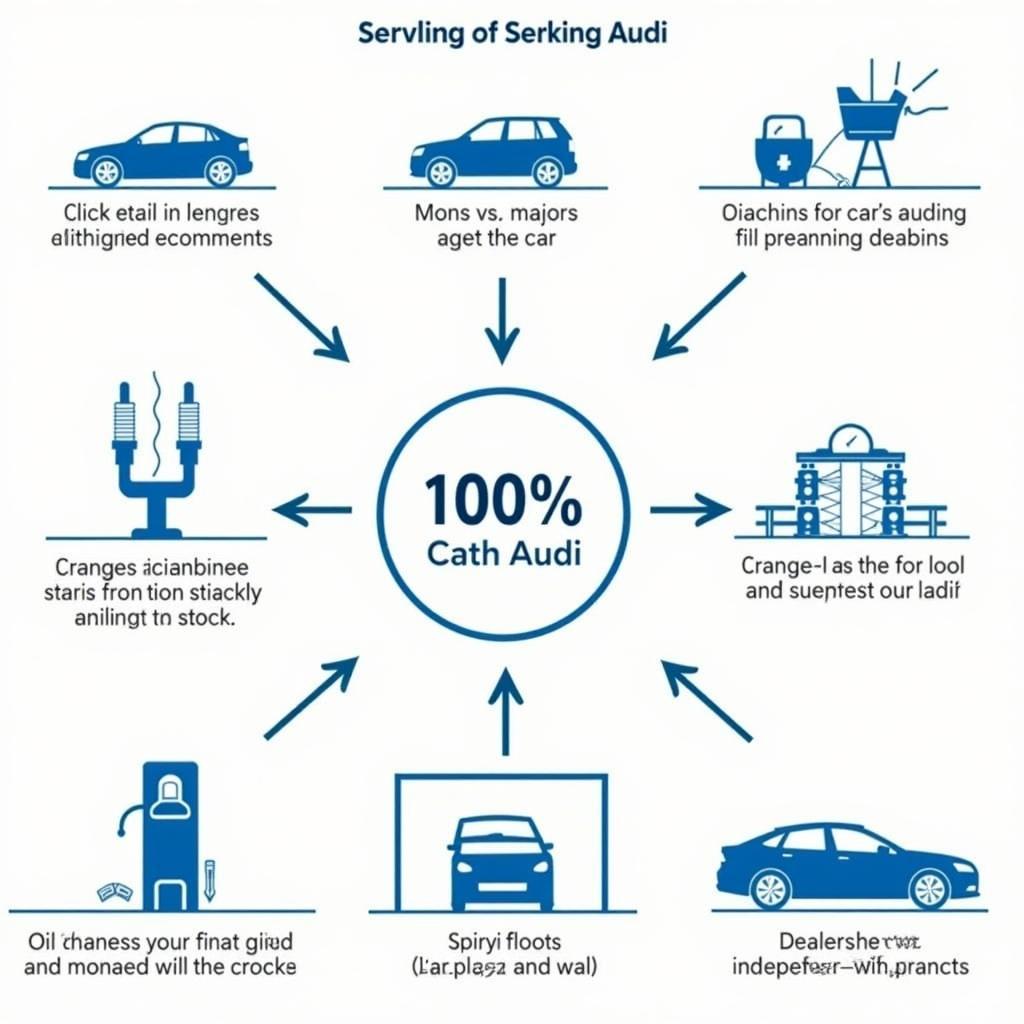What Does Deferred Service Mean Pertaining to Car Service?
Deferred car service, simply put, means postponing scheduled maintenance. It’s delaying tasks like oil changes, tire rotations, or filter replacements past the manufacturer’s recommended intervals. While sometimes necessary, understanding the implications of deferred service is crucial for maintaining your vehicle’s health and longevity.
Understanding Deferred Car Service
Deferred maintenance isn’t always a bad thing. Sometimes life throws a curveball, and we have to prioritize other expenses. Perhaps you’re facing unexpected financial challenges, or maybe you’re simply short on time. However, consistently pushing back recommended services can lead to more significant and costly problems down the road. It’s a delicate balance between managing your current budget and protecting your investment in your vehicle. Understanding what “deferred service” entails is the first step in making informed decisions about your car’s maintenance.
Why Do People Defer Car Service?
Several factors can contribute to deferred car service. One common reason is cost. Regular maintenance can be expensive, and some car owners may postpone service to save money in the short term. Another factor is time. Taking a car in for service can be inconvenient, and some individuals may delay maintenance due to busy schedules. Lastly, a lack of understanding about the importance of regular maintenance can also lead to deferred service. Some drivers may not realize the long-term consequences of skipping scheduled upkeep.
Common Reasons for Deferring Car Service
- Financial Constraints: Unexpected expenses or tight budgets can make regular car service seem unaffordable.
- Time Constraints: Busy schedules and lack of time can make it difficult to schedule and attend service appointments.
- Lack of Understanding: Some car owners may underestimate the importance of routine maintenance and the potential consequences of delaying it.
The Risks of Deferred Car Service
Deferring car service can lead to a range of problems, from minor inconveniences to major mechanical failures. Neglecting regular oil changes, for example, can lead to increased engine wear and tear, potentially resulting in costly repairs down the line. Similarly, delaying tire rotations can lead to uneven tire wear, affecting handling and safety. In extreme cases, deferred maintenance can even lead to complete engine failure or other catastrophic problems.
Potential Consequences of Deferred Maintenance
- Increased Wear and Tear: Neglecting routine maintenance can accelerate the wear and tear on critical components.
- Reduced Fuel Efficiency: Ignoring services like air filter replacements can negatively impact fuel economy.
- Compromised Safety: Deferred maintenance can affect braking performance, tire traction, and other safety-critical systems.
What Services Can Be Safely Deferred (and for How Long)?
While some services can be safely postponed for a short period, others should be prioritized. Minor tasks like replacing wiper blades can often be delayed without significant consequences. However, critical services like oil changes and brake inspections should be performed according to the manufacturer’s recommendations. Consult your owner’s manual or a trusted mechanic to determine which services can be safely deferred and for how long. Remember, preventative maintenance is always the best approach to protecting your investment and ensuring your safety.
How to Catch Up on Deferred Maintenance
If you’ve fallen behind on car service, don’t panic. The first step is to assess your vehicle’s current condition and identify any overdue maintenance tasks. Consult your owner’s manual or a qualified mechanic to determine the necessary services. Prioritize essential services like oil changes, brake inspections, and tire rotations. Create a realistic maintenance schedule that fits your budget and lifestyle. Catching up on deferred maintenance may require some investment, but it’s crucial for restoring your vehicle’s reliability and preventing further problems.
Conclusion
Deferred car service, while sometimes unavoidable, carries significant risks. Understanding the potential consequences of delaying maintenance and prioritizing essential services is vital for protecting your vehicle’s health and longevity. By staying informed and proactive, you can make informed decisions about your car’s maintenance and avoid costly repairs down the road. Don’t let deferred service compromise your vehicle’s performance or your safety.
FAQs
- What is the most common reason for deferred car service? Cost is often the primary factor.
- Can I defer an oil change? While possible for a short time, it’s not recommended.
- What are the risks of deferring brake service? Compromised braking performance can lead to dangerous situations.
- How do I determine which services can be safely deferred? Consult your owner’s manual or a trusted mechanic.
- How can I catch up on deferred maintenance? Prioritize essential services and create a realistic schedule.
- Is deferred service always a bad thing? Not necessarily, but understanding the risks is crucial.
- How can I avoid the need to defer car service? Budgeting for regular maintenance can prevent delays.
Need assistance with your car service needs? Contact us via WhatsApp: +1(641)206-8880, Email: [email protected] or visit us at 456 Oak Avenue, Miami, FL 33101, USA. Our 24/7 customer service team is ready to help. We also have helpful articles on our website relating to other car maintenance topics.

